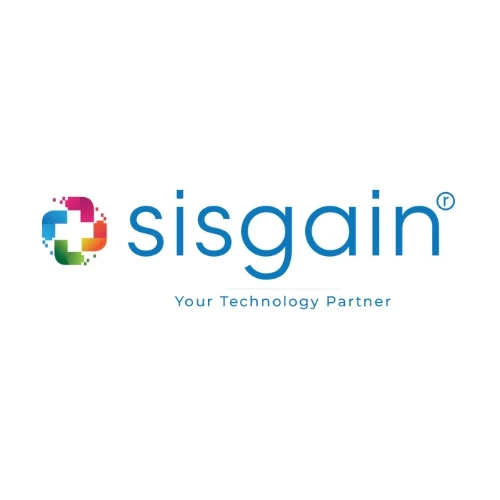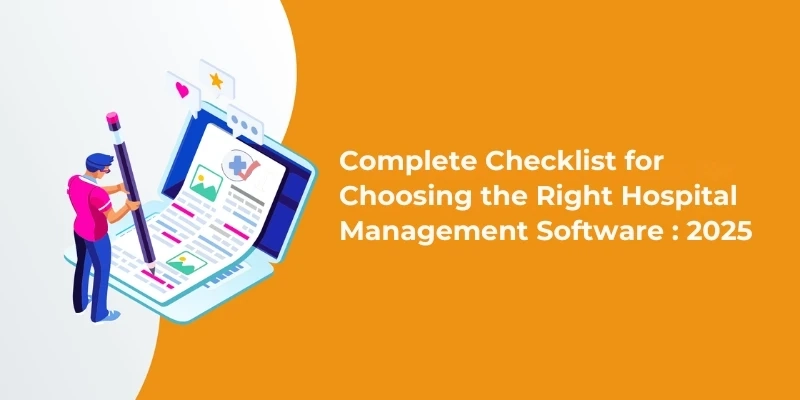Why Choosing the Right Hospital Management System Software Matters in 2025
The healthcare landscape in 2025 is rapidly evolving, with digital transformation becoming not just a strategic advantage but an operational necessity. Hospitals and clinics are under increasing pressure to deliver faster, safer, and more efficient care. One of the most critical enablers of this transformation is the hospital management system software (HMS). The right solution doesn’t just improve administrative efficiency—it enhances patient care, compliance, and financial performance.
In Saudi Arabia and other digitally progressive regions, healthcare organizations that have adopted robust hospital management software report improvements in resource utilization by up to 30%, reduction in patient waiting times, and increased data security. Whether you run a multispecialty hospital or a small clinic, selecting the ideal HMS or clinic management software is a foundational decision.
This complete checklist for 2025 will help healthcare decision-makers understand what features, compliance standards, and technical benchmarks to consider before investing in a hospital management system.
Key Considerations Before Investing in Hospital Management Software
Before choosing any HMS solution, it's essential to assess organizational readiness and objectives. Ask yourself the following:
- What are the current pain points in your hospital workflows?
- Are you looking for a complete overhaul or just specific modules like billing, EMR, or inventory?
- Do you need cloud-based or on-premises deployment?
- What is your budget and desired ROI period?
- Are your staff digitally literate and open to technology adoption?
Answering these questions will narrow down your software options and ensure the final choice aligns with your hospital’s long-term goals.
Checklist for Selecting the Right Hospital Management System Software in 2025
Seamless Integration with Existing Infrastructure
The best hospital management system software should integrate easily with your existing tools, including EMR, radiology systems, lab systems, and pharmacy modules. Lack of integration leads to fragmented workflows and manual errors. Look for APIs, HL7 compatibility, and data migration support. An integrated system will ensure a smoother transition and continuous interoperability.
Comprehensive Module Coverage
An ideal hospital management software should cover all departments and functions:
- Patient Registration and EMR
- Billing and Insurance
- Appointment and Scheduling
- Inpatient and Outpatient Management
- Pharmacy and Lab
- Radiology and Imaging
- Inventory and Asset Tracking
- HR and Payroll
- Finance and Analytics
The broader the module offering, the more value the software adds to your hospital's operations. Modular scalability also allows you to start small and expand later.
Customization and Scalability
Every hospital is different. Your hospital management system must allow customization based on your specific workflows and organizational policies. The software should scale as your hospital grows—whether you expand to multiple branches or add new specialties. Customizable dashboards, role-based access, and adaptable forms are key indicators of scalability.
User-Friendly Interface and Multilingual Support
A user-friendly interface reduces the learning curve and accelerates staff onboarding. Choose software that offers a modern UI, easy navigation, and minimal data entry complexity. Multilingual support, especially for Arabic and English, is crucial in countries like Saudi Arabia. This boosts usability across diverse staff roles.
Cloud-Based vs On-Premises Deployment
In 2025, cloud-based hospital management software is the preferred model due to lower upfront costs, real-time accessibility, and easier updates. However, on-premises solutions offer more control and may suit organizations with strict data policies. Ensure the vendor offers both options, with hybrid flexibility if needed.
Data Security and Compliance Readiness
The chosen hospital management system software must comply with healthcare data regulations such as HIPAA, GDPR, or local laws like Saudi Arabia's NPHIES standards. Key security features should include:
- End-to-end encryption
- Multi-factor authentication
- Role-based access controls
- Regular security audits
- Data backup and disaster recovery
Compliance isn’t optional; it's essential to protect sensitive patient information.
Interoperability and Standard Protocols
Your HMS software should comply with HL7, FHIR, and ICD-10 standards to ensure interoperability. This is especially important for government programs and insurance processing. Integration with external labs, telehealth platforms, and public health databases becomes seamless when the software uses standard protocols.
Analytics, Dashboards, and Reporting Tools
Real-time dashboards and automated reporting give decision-makers a strategic edge. Look for systems with customizable KPI dashboards, visual analytics, and predictive analytics tools. Clinical, operational, and financial data should be accessible through exportable and role-based reports.
Mobile Access and Remote Functionality
With increasing demand for remote access, your hospital management system should offer mobile-compatible interfaces or dedicated mobile apps. Doctors, nurses, and admin staff should be able to access patient data, approve requests, and manage appointments from anywhere securely.
AI and Automation Capabilities
In 2025, leading hospital management software solutions are embedded with AI features. These include smart scheduling, voice-to-text documentation, predictive analytics, and chatbot support. Automation reduces manual workloads and minimizes errors across departments.
Cost Structure and Licensing Flexibility
Transparency in pricing is crucial. Understand whether the licensing is perpetual, subscription-based, or user-based. Look for packages that suit your operational size and offer upgrade paths. Beware of hidden costs like data migration, customization, or training.
Vendor Support and Post-Sales Services
Choose a vendor with proven reliability and strong after-sales service. Key aspects to look for:
- 24/7 technical support
- Onboarding and training sessions
- Local support teams
- Regular system upgrades
A vendor who supports your digital journey will ensure your software investment delivers maximum value.
Common Pitfalls to Avoid When Choosing Hospital Management Software
- Choosing software that isn’t customizable to your workflows.
- Ignoring integration capabilities.
- Overlooking compliance and data privacy requirements.
- Opting for price over long-term usability.
- Failing to train staff or involve them in decision-making.
Avoiding these common mistakes ensures smoother implementation and higher user adoption.
Final Checklist Before You Choose Hospital Management System Software
- Is the software compliant with national healthcare laws?
- Does it support cloud, on-premises, or hybrid infrastructure?
- Can it scale with your organization?
- Are users comfortable with the UI and workflows?
- Does it integrate with your lab, pharmacy, and radiology systems?
- Are analytics and mobile access part of the package?
- What kind of technical support and upgrades are offered?
Answering these will give clarity before finalizing the best hospital management system for your needs.
Conclusion
As healthcare becomes increasingly digital, choosing the right hospital management system software is not just a technological decision, but a strategic one. A well-chosen HMS improves patient outcomes, increases staff efficiency, enhances compliance, and delivers financial savings. Whether you're running a large hospital network or a specialized clinic, aligning your choice with 2025 standards ensures you stay competitive and future-ready.
Remember, don’t just invest in software—invest in a solution that transforms how you deliver healthcare. And with the right clinic management software or hospital-wide system in place, you pave the way for operational excellence, clinical innovation, and better patient care.
Contact Now
Email :- hello@sisgain.ae
Phone No :- +971-56-848-5757
Location :- Saudi Arabia



